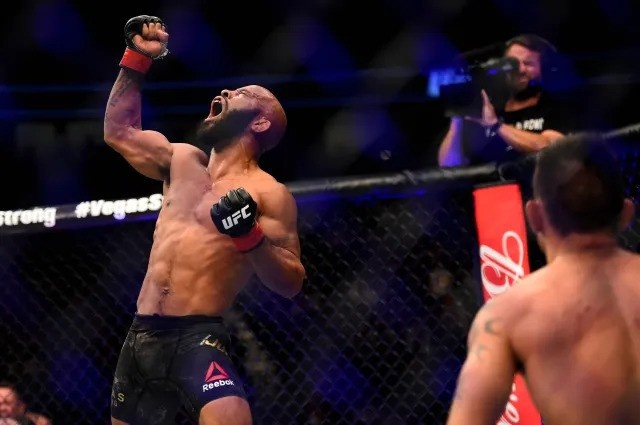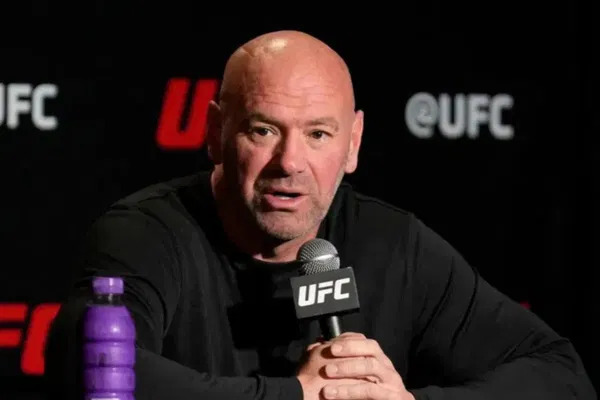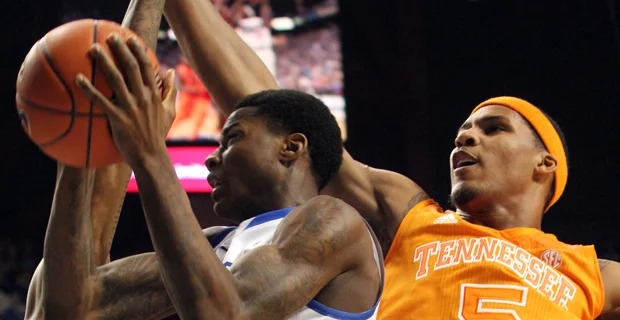
Table of Contents
Key Takeaways:
- Ronda Rousey’s retirement from both UFC and WWE was primarily driven by severe and accumulating neurological injuries, specifically a history of concussions and debilitating vision-triggering migraines.
- She deliberately kept her extensive concussion history a secret to prolong her career, highlighting the pressures athletes face regarding health disclosures.
- Rousey’s journey sheds light on the long-term physical toll of combat sports and the evolving understanding of brain health in elite athletes.
In the world of combat sports, few names resonated as powerfully as Ronda Rousey. A trailblazer who brought women’s MMA to the forefront, her sudden departure from the UFC octagon in 2016, followed by her eventual exit from WWE, left many fans pondering the true reasons behind her decisions. Now, Rousey has broken her silence, revealing a harrowing truth: her career was cut short not by a decline in skill, but by a relentless, hidden battle with concussions and severe vision-triggering migraines. This candid revelation offers a crucial, people-first perspective on the often-unseen health struggles of elite athletes.
The Early Warning Signs: A Lifetime of Head Trauma
Rousey’s history with head trauma began long before her meteoric rise in MMA. As she explains, her first concussion reportedly occurred at the tender age of seven. Years of competitive judo, a sport demanding intense physical contact and throws, further compounded these issues. She recounts experiencing concussion symptoms “more often than not for an entire decade” during her judo career. This pre-existing condition meant that by the time she stepped into the MMA cage, her brain was already compromised.
“Every single time you get one concussion, it’s easier to get the next one,” Rousey stated, underscoring the compounding nature of these injuries. This explains why even seemingly minor strikes in her UFC fights could lead to severe neurological responses, including vision-triggering migraines and “seeing stars,” which she noted was “not normal.”
The Weight of Silence: Competing Through Pain
One of the most striking aspects of Rousey’s revelation is the admission that she actively concealed her concussion history. The fear of being sidelined, of losing opportunities, and of potentially having her career cut short, forced her into a difficult position. This isn’t an isolated incident; many athletes in high-impact sports face similar dilemmas, balancing their passion and profession against their long-term health. The competitive landscape often discourages transparency regarding injuries that could be perceived as weaknesses.
Her decision to retire from the UFC after back-to-back losses to Holly Holm and Amanda Nunes, while publicly attributed to competitive setbacks, now reveals a deeper, underlying health crisis. The devastating knockout by Holm, in particular, may have exacerbated her pre-existing neurological injuries, making continued high-level competition untenable.”about the dangers of concussions in combat sports “
Beyond the Octagon: The WWE Chapter and Continued Struggles
Even after transitioning to WWE, where the impact is ostensibly less severe, Rousey’s struggles with brain health persisted. She confirmed that even an open-hand slap from Nikki Bella during a WWE storyline caused her to see stars and suffer a headache for the rest of the day. This demonstrates the cumulative nature of brain injuries and how seemingly minor impacts can trigger significant symptoms in individuals with a history of concussions.
Her journey highlights a critical discussion point in sports: the long-term welfare of athletes. As our understanding of conditions like Chronic Traumatic Encephalopathy (CTE) grows, stories like Rousey’s serve as stark reminders of the profound sacrifices athletes make for their careers. the Concussion Legacy Foundation, CTE .” This evolving scientific knowledge underscores the need for greater athlete protection and comprehensive long-term health monitoring.
The Trade-Offs of the Ring: A Broader Perspective on Athlete Health
Ronda Rousey’s story is a poignant case study that transcends individual circumstances, offering insights into the broader challenges faced by athletes in high-impact disciplines. The allure of victory, fame, and financial reward often overshadows the inherent risks. For years, the prevailing culture in combat sports encouraged pushing through pain, viewing any admission of weakness as a detriment. However, athletes like Rousey are now bravely stepping forward, forcing a much-needed conversation about athlete well-being.
The ongoing debate about fighter pay and benefits in organizations like the UFC also intersects with this issue. Unlike athletes in many other major sports, UFC fighters often lack comprehensive long-term health benefits, leaving them to bear the financial and physical brunt of their injuries post-retirement. ” about UFC fighter benefits and long-term care .” This absence of a robust safety net further compounds the personal cost of neurological injuries.
The balance between captivating entertainment and athlete safety remains a tightrope walk for combat sports promotions. Rousey’s detailed account of her vision-triggering migraines and the sheer volume of concussions she endured provides invaluable data for ongoing research into brain health in athletes. It emphasizes that the spectacular knockouts and submissions fans cheer for come at a significant, sometimes lifelong, cost to the fighters.
| Impact Category | Short-Term Effects | Long-Term Effects |
|---|---|---|
| Physical | Headaches, dizziness, nausea, blurred vision, temporary memory loss. | Chronic headaches, persistent balance issues, cognitive decline, mood disorders, increased risk of neurodegenerative diseases (e.g., CTE). |
| Mental/Emotional | Irritability, anxiety, difficulty concentrating, sleep disturbances. | Depression, anxiety, personality changes, impaired judgment, memory loss, emotional instability. |
| Career | Missed training, forced layoffs, decreased performance. | Early retirement, inability to pursue other physically demanding careers, financial strain due to medical costs. |
Moving Forward: Prioritizing Brain Health
Ronda Rousey’s decision to speak openly about her Ronda Rousey retirement reasons, particularly the impact of concussions and vision-triggering migraines, is a powerful step towards destigmatizing such injuries in sports. It serves as a vital reminder for athletes, coaches, and organizations to prioritize long-term health over immediate competitive gains. As sports science continues to advance, so too must the protective measures and support systems for those who dedicate their lives to these demanding professions.
This revelation should serve as a catalyst for ongoing discussions about mandatory brain health screenings, improved concussion protocols, and comprehensive post career support for athletes across all contact sports. The legacy of athletes like Ronda Rousey should include not only their athletic achievements but also their contributions to a safer, more health-conscious future for generations of competitors.
What are your thoughts on Ronda Rousey’s brave revelation about her concussions and migraines? How do you think organizations like the UFC and WWE can better protect their athletes’ long-term brain health? Share your perspective in the comments below!
FAQs
1. What was the primary reason for Ronda Rousey’s retirement from combat sports?
Ronda Rousey primarily retired due to a long history of concussions and neurological injuries, which made it unsafe and unsustainable for her to continue competing at an elite level.
2. Did Ronda Rousey experience vision-triggering migraines during her fighting career?
Yes, Rousey has revealed that she suffered from vision-triggering migraines, which were a significant factor in her decision to retire, especially after absorbing impacts.
3. Why did Ronda Rousey keep her concussion history secret for so long?
She feared that disclosing her concussion history would prevent her from being cleared to compete in both UFC and WWE, potentially ending her career prematurely.
4. How did concussions from her judo career impact her time in UFC?
Rousey stated that she had a “rich concussion history” from her judo days, which compounded over time, making her more susceptible to severe symptoms like “seeing stars” even from minor strikes in MMA.
5. What is the significance of Ronda Rousey’s retirement in the context of fighter health?
Her public disclosure highlights the critical, often hidden, health issues professional combat athletes face, bringing further attention to the long-term impacts of repeated head trauma in sports.





